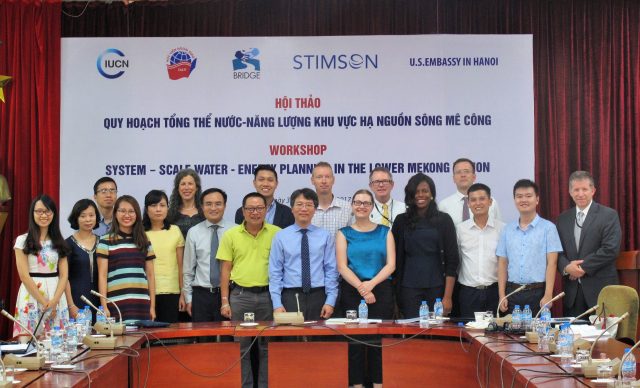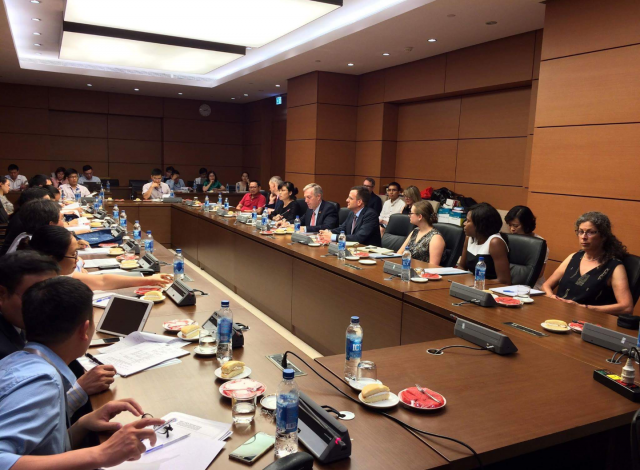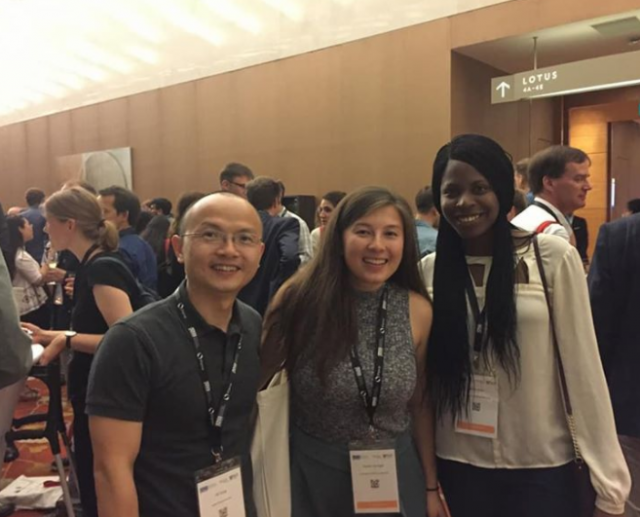
System-Scale Planning Workshop by the Stimson Center, hosted by the Diplomatic Academy of Vietnam in Hanoi.
What difference did researching with ERG make for you? I initially thought I wanted a Ph.D. in Chemical Engineering, focused on carbon sequestration. I wanted to continue to use my reservoir engineering background from college. I am really glad that didn’t work out. The types of questions explored at ERG are beyond numbers and models. ERG encouraged me to ask uncomfortable questions and to challenge the status quo. Why did you choose ERG? What made it unique for you? I applied for graduate school at a time in my life when I was looking for greater purpose for my work. I spent a lot of time in college and during my career volunteering. I was a bit burnt out. I wanted to find a space where I could also think about why injustices happen — not only act against injustice (which is still very important!). ERG’s mission statement made me hopeful that I’d find that space and other scholars who are interested in those questions too. I was right. How had your background been a part of your research and time at ERG? I grew up in Lagos, Nigeria. In the 1990s/2000s, Lagos Island (where we lived) typically had electricity for 8-12 hours a day. That was a good thing! When I was seven, we moved to a part of Lagos (Lekki Peninsula) that had not been developed yet. It was a very unique experience. Imagine moving from a vibrant city to an isolated place — it is hard to describe. There was no public water, telephone, or electricity provision. When the grid finally came online four years later, we had constant and reliable electricity access for a few years before the reliability went down. I have experienced the whole spectrum of energy access that I now hear about from academic and development perspectives. This is what drove my work. What advice do you have for prospective students, what can they expect? Expect to change a lot — that’s the point! Expect to make lifelong friends. In what ways was the work that you had been involved in at ERG “cutting edge”? I think the part of my research that incorporated social science methods, particularly urban planning, was new to the literature. A quick search on distributed generation returns a plethora of modeling papers, which are very good and have been indispensable. Only a few papers talk about the social impacts of distributed generation. This is the space I wanted to contribute to — and eventually did contribute to when I was at ERG. Who did you work with at ERG? I was part of a team researching alternatives to large hydropower development on the Mekong River. Last year, I spent one week in Hanoi, Vietnam, presenting my team’s research to four planning ministries and to the National Assembly.
I am seated with the US Ambassador to Vietnam, Ted Osius, as he gives the keynote speech at the National Assembly of Vietnam in Hanoi.
I also presented my research at a conference in Singapore. Other ERGies, Cecilia Han (MS ‘16) and Gang He (PhD ‘15), presented their research as well.
ERGies in Singapore: (Left to Right) Gang He, Cecilia Han, and me.
What are you up to now? I am a grid innovation engineer at PG&E in San Francisco, working on designing and deploying grid-connected microgrids. I am also a non-residential scholar at the Stimson Center in Washington D.C., continuing my research for the Mekong Basin Connect Initiative. Updated September 2018 by Chris Hyun.